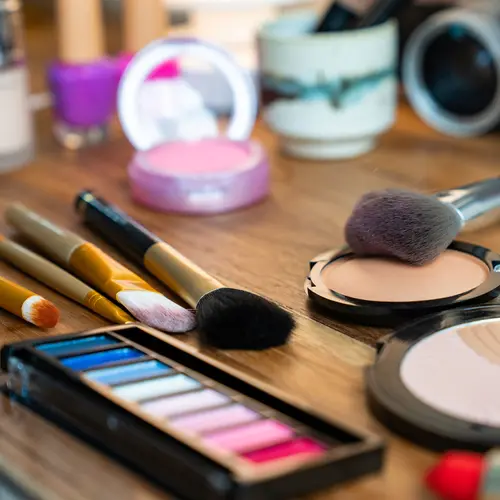Expert Defines: A Dermatologist Speaks About Dry Skin

Hide Video Transcript
Video Transcript
[MUSIC PLAYING]
So the type of soap matters a lot, in addition, how much of it you use and where you use it. So bar soaps and fragrance soaps are drying, and I don't recommend them. I generally like a fragrance-free product, which, by the way, is different than unscented. Unscented products have a little bit of perfume. Fragrance-free products are completely free of all scent and are, therefore, less strong and irritating.
Your skin could be dry because there's lack of moisture. But it also could be dry from dead skin cells on the surface. So it's a little counterintuitive, but some fruit acid moisturizers containing ingredients such as lactic acid or urea are especially good at taking off the dead cells. Once those dry, older cells are exfoliated, you can moisturize over the damp, remaining cells and really feel great. It will give your skin a dewy feel, and it will feel softer to the touch.
Brushes and loofahs are OK, but they tend to collect bacteria in the shower. They're good for elbows, knees, feet, but they're not great for large body surfaces like the back or chest. They're a little bit harsh. Some people just get a little sense of dryness. Some people get a lot of itching. And some people even get cracks or fissures around their hands and feet. So there's a wide variety in how dry the skin can become.
And in that regard, there's a wide variety of products to help treat dry skin. And that spans the gamut from lighter moisturizers that are liquid at room temperature to creams that are solid at room temperature. The most important feature is that you use these products on your damp skin so that they'll trap a little of that moisture in the top layer.
Well, it can be confusing because there are so many types of moisturizers to choose from, but I generally like to make it simple. One for the face. One for the body. While you're not going to get a systemic illness from dry skin, although some people with illnesses show that with dryness. For instance, one of the main features of hypothyroidism or low thyroid is dry skin. So that's one thing your doctor would consider if drawing a blood test or during your checkup.
But the take home messages are the same for everybody. Not too much soap. No fragrance. Shorter, cooler showers. And lots of moisturizer on your damp skin. And for the most part, you're going to get some relief immediately.
BARNEY KENET
Dry skin is ubiquitous. It's a common problem that patients call me for all the time. It's sort of a combination of too much bathing, too much drying soap. Other factors like age and menopause and sun exposure also play a role. But really the number one driver of dry skin in our communities is long, hot showers, lots of soap, and too little moisturizer. So the type of soap matters a lot, in addition, how much of it you use and where you use it. So bar soaps and fragrance soaps are drying, and I don't recommend them. I generally like a fragrance-free product, which, by the way, is different than unscented. Unscented products have a little bit of perfume. Fragrance-free products are completely free of all scent and are, therefore, less strong and irritating.
Your skin could be dry because there's lack of moisture. But it also could be dry from dead skin cells on the surface. So it's a little counterintuitive, but some fruit acid moisturizers containing ingredients such as lactic acid or urea are especially good at taking off the dead cells. Once those dry, older cells are exfoliated, you can moisturize over the damp, remaining cells and really feel great. It will give your skin a dewy feel, and it will feel softer to the touch.
Brushes and loofahs are OK, but they tend to collect bacteria in the shower. They're good for elbows, knees, feet, but they're not great for large body surfaces like the back or chest. They're a little bit harsh. Some people just get a little sense of dryness. Some people get a lot of itching. And some people even get cracks or fissures around their hands and feet. So there's a wide variety in how dry the skin can become.
And in that regard, there's a wide variety of products to help treat dry skin. And that spans the gamut from lighter moisturizers that are liquid at room temperature to creams that are solid at room temperature. The most important feature is that you use these products on your damp skin so that they'll trap a little of that moisture in the top layer.
Well, it can be confusing because there are so many types of moisturizers to choose from, but I generally like to make it simple. One for the face. One for the body. While you're not going to get a systemic illness from dry skin, although some people with illnesses show that with dryness. For instance, one of the main features of hypothyroidism or low thyroid is dry skin. So that's one thing your doctor would consider if drawing a blood test or during your checkup.
But the take home messages are the same for everybody. Not too much soap. No fragrance. Shorter, cooler showers. And lots of moisturizer on your damp skin. And for the most part, you're going to get some relief immediately.

